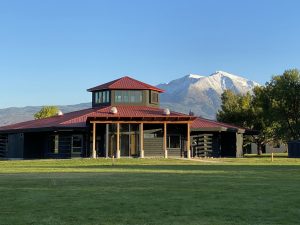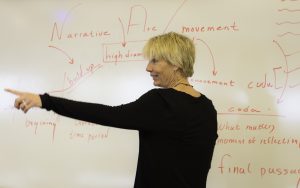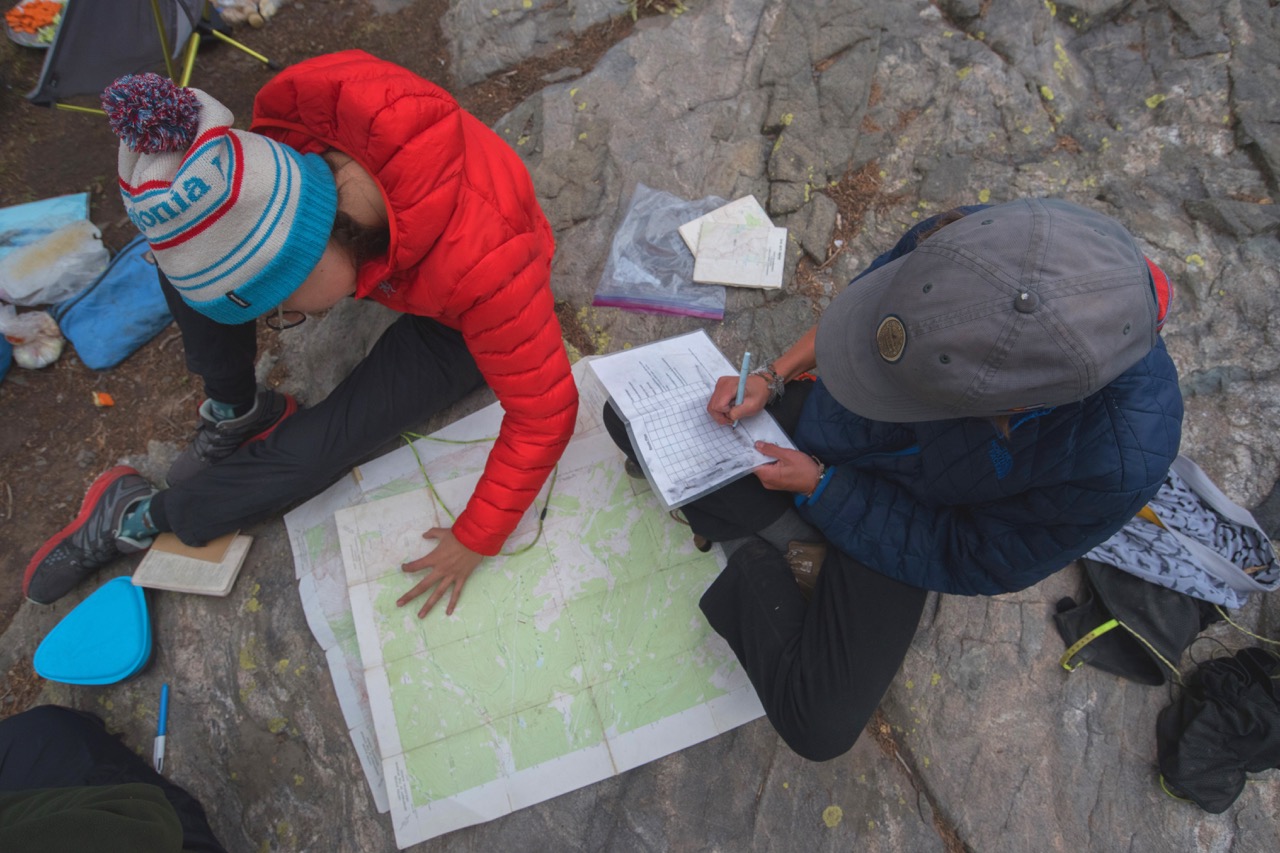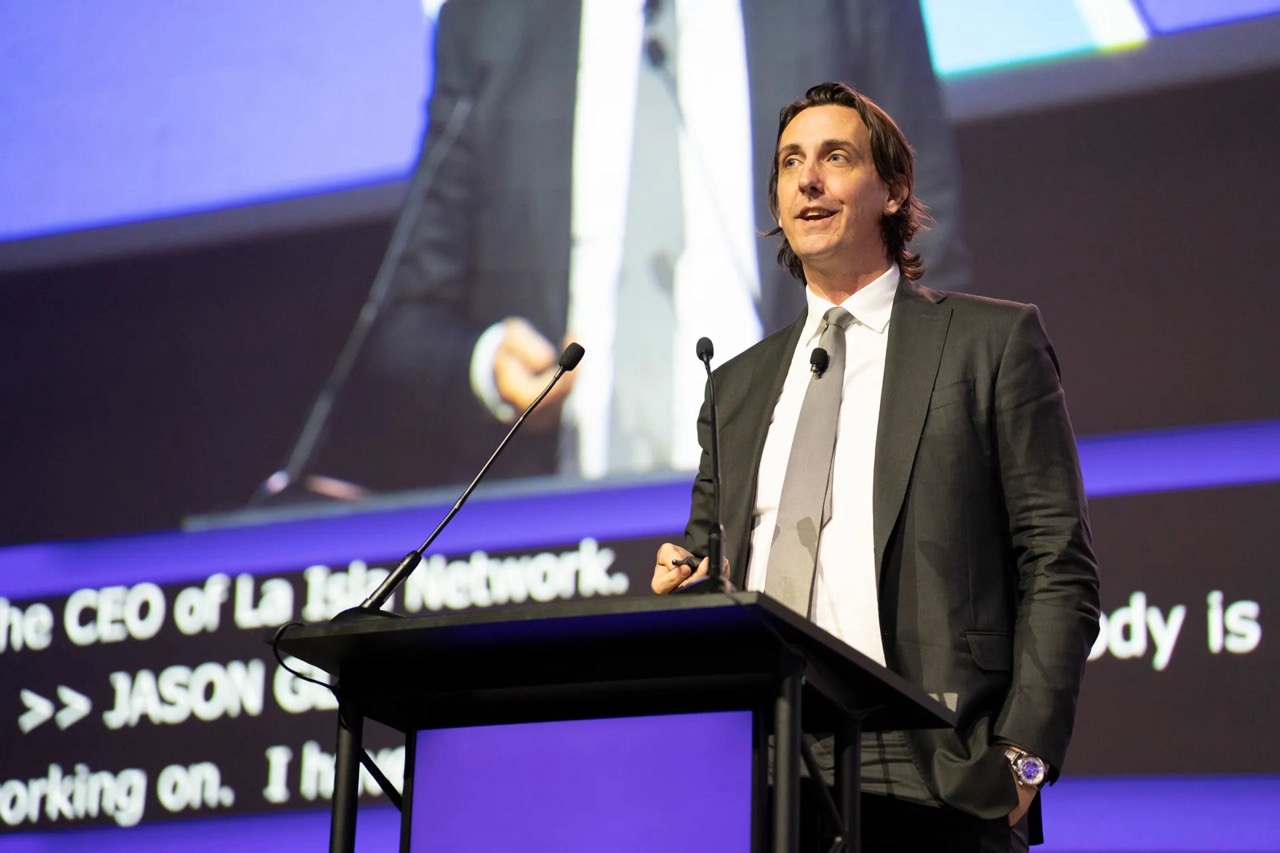College Counseling the Oyster Way
The ranks of independent college counselors in the United States continue to grow, from an estimated 1,400 in 2005 to some 8,000 in 2015, according to the National Center for Education Statistics. Those numbers tell a story of perceived need, of families anxious for help to get their high-school graduate into the best possible college or university.
Especially for the high achievers eyeing tough, selective schools, the college admissions process can be fraught with pressure. More students are applying to colleges and the perceived value of a college degree has never been higher. So the process gets more competitive — and therefore stressful — by the year.
But here’s the good news for CRMS families. There’s a dedicated college counselor on campus, and she spends 100 percent of her time guiding students through the admissions process. Moreover, the college counseling program is woven into the CRMS curriculum, so students are pondering, researching, and preparing to apply months before the actual documents are due.
By the time CRMS seniors click the “submit” button on their first college application, they’ve spent months considering virtually every college-related question, from the basic “Why do you want to go to college?” to the finer distinctions between two competing private, liberal arts schools.
Betsy Bingham-Johns is CRMS’s college counselor, and she sees all students regularly from the middle of their junior year to the middle of their senior year. They meet in small, interactive groups of six or seven students and work their way from the very general to the very specific.
During junior year, for example, students create a profile of “My Ideal College” to spur their thinking. They take the standardized SAT and ACT tests for the first time. While formulating their list of colleges, students also begin to create a college resume and personal essay.
“All of them are going to need a personal essay, so it’s OK to begin that even if they don’t know yet where it’s going to be sent,” said Bingham-Johns.
Take note, parents. That kind of forward-thinking will save you dozens if not hundreds of hours in the trenches of the college-application process. Consider the following from Lisa Doherty, the mother of Forrest Doherty.
“This process can really produce conflict between kids and parents, but Betsy just simplified it,” Doherty said from her home in New Castle, Colo. “It just became this joy to see how everything was unfolding.”
Forrest’s parents essentially relinquished control of the process to Bingham-Johns. A high school advisor herself, Lisa often felt as though she should get involved, but decided it wasn’t necessary. Bingham-Johns helped choose the college that was both the right distance from home and the right academic fit, Doherty said. Even after Forrest’s graduation from CRMS, Bingham-Johns supported the family with documents and input toward a scholarship application.
“I felt very comfortable surrendering to the process, knowing that Betsy would provide very intelligent and careful guidance,” she said. “Forrest even wrote Betsy a beautiful letter on his own, acknowledging how she helped him every step of the way.”
During the fall of their senior year, CRMS students gather their teacher recommendations and narrow their final list to between six and nine schools. They retake the SAT or ACT, whichever test yielded the higher score. After being coached on interview skills, what questions to ask on a tour, and other nuances, students are encouraged to actually visit campuses. Most applications are sent between November and January.
College Counseling class may not have the same rigorous feel as AP Calculus but, as Bingham-Johns often reminds her charges, “this is your life.” And this phase of life begins with stiff competition: Thousands of young adults compete for hundreds of spaces, with especially severe winnowing processes at the most selective schools.
Colorado College, located in Colorado Springs, receives 10-15 applications every year from CRMS and at least two or three CRMS graduates typically enroll there. Overall, says Assistant Director of Admission Leah Fugere, the school received a record 8,200 applications this year and expects to admit 530 freshmen. In this “very tight” admissions environment, Fugere says, Bingham-Johns boosts her students’ prospects by pushing them toward the earlier admission rounds, when their chances of admission are higher.
So Bingham-Johns is strategically effective for her students. More important to Fugere, however, is Bingham-Johns’ personal understanding of her charges and her collaborative approach to the job.
“Betsy is really cognizant of where each student will perform best,” Fugere said. “She doesn’t approach it as a competition or a game where she’s trying to get in as many students as possible. She uses our relationship as a mutual collaboration to find the best fit for the student.”
With 13 years in college admissions, Bingham-Johns is realistic about her students’ strengths and weaknesses. She encourages all of them to balance six to nine applications between schools where they are “likely” to get in, schools where their chances are “moderate,” and schools that constitute a “reach.” Alongside those calculations, she also tries to understand each student’s personality well enough that every CRMS graduate finds a college to suit his or her talents, tastes, and learning style. It’s not about getting into the most selective school or the school with the finest “brand,” but the best overall environment for the individual.
“I really feel like there’s a place for every student,” she said. “I don’t really look at students in terms of their academic level or what-not. I try to get to know them each individually, and get them to a place where they’ll find success.”
Certainly, academic performance is a key part of the picture, and it often determines what schools are accessible. But success at college hinges on many other factors too, from finances to family dynamics to social and cultural characteristics.
“What does it mean to go to a large school vs. a small school?” Bingham-Johns asks. “What does it mean to go to a really selective school vs. non-selective? What does it mean to be in an urban environment vs. suburban or rural?”
Throughout their CRMS careers, students take periodic reading, writing, and mathematics tests to gauge their skills and enable the school to track their progress. These exams include the Educational Records Bureau’s Writing Assessment Program, PSAT, ACT, and SAT. The junior-year curriculum includes a test-prep class that bolsters students’ chances on standardized tests and helps to fasten their minds on the overall admissions process.
Bingham-Johns wants students to evaluate their college choices from all angles, including culture, climate, and extracurricular activities. The student drives the process, but Bingham-Johns acts as a guide and coach.
Given CRMS’s outdoor orientation, some students insist on a college where they can ski or kayak in their spare time. It may not be the number-one criterion, but it’s a piece of the individual puzzle. Bingham-Johns addresses each of these facets in an organized, systematic way.
“It can be so overwhelming. Where do you even start?” asked Julie Hartshorn, the mother of a CRMS graduate and a current CRMS senior. “Do you want a big school or a small school? Liberal arts or science-focused? But she is also focused on whether (the family) can afford it, and whether (the student) likes the Midwest or some other part of the country.
“With Betsy, everything is an option, but the real question is ‘Who are you?’”
Bingham-Johns keeps every student’s files and ensures all deadlines are met. Every application consists of multiple forms, and when a student applies to various institutions, the deadlines can come fast and furious. Bingham-Johns is there throughout, directing traffic, providing gentle reminders and encouragement.
Lisa Wexler’s son Jacob, though brilliant, he tended to procrastinate. Lisa recalls Bingham-Johns going above and beyond to ensure Jacob’s personal essays were both on time and on-point.
“One of these applications came down to the last second,” Wexler recalled. “The two of them were in Google docs and I could see what they were doing, editing and cutting down the words. To see that process in action, literally on a midnight deadline and she was right there with him … I’m so thankful we had her.”
When asked what sets her apart from other college counselors, Bingham-Johns says first that most private, independent schools have a full-time college advisor, and that CRMS resembles its competitors in that respect. But she does bring her own style to the job.
“I guess I would say I’m much more like a mom, someone to come get a hug from when you’re feeling stressed out,” she said. “I want kids to feel like they can come and let out whatever they need to let out with me, and I’ll reassure them. I’m also the first one to give your kid a kick in the butt — in a nice way — if they need that.”
Bingham-Johns spent years in an office adjoining the Bar Fork cafeteria. That space was known for both the college banners on the wall and the body-engulfing lounge chairs that students adored. She’s since relocated to a space in the new library and, though the office feels more like a traditional meeting room, the students still drop by unannounced for counseling, consoling, or, sometimes, cajoling.
“I definitely have an open-door policy,” she said. “Although it’s distracting for me, I really want them to feel like I’m a resource for them and they can always come and talk to me.”
That open door leads to an uncommonly deep understanding of her students. Erika Quiggins, senior associate dean of admissions at Lewis and Clark College in Oregon, has visited CRMS and says there’s a “beautiful match” between the Carbondale school and the private, liberal-arts college.
“Betsy knows her students and she also knows the colleges she works with very well,” Quiggins said. “She does a wonderful job of knowing her students, and knowing where they’ll succeed.”
It’s important to note that, if Harvard is a student’s goal, then Bingham-Johns will examine the student’s thinking to ensure that an Ivy League school is truly the best choice.
“My overarching goal is that they should challenge themselves to the highest level where they can find success,” she said. “Getting all of our kids into Ivys would be counterproductive because a lot of them don’t belong there. But a lot of them do, and they get there.”
So some kids may need to reconsider their Ivy League ambitions; on the other hand, some may need to set their sights uncomfortably high in order to realize their potential. With some kids, the application may need to change in order to put the student’s best foot forward.
At Lewis and Clark, for example, roughly 10 percent of applicants choose a “test-optional portfolio path,” meaning that they don’t submit standardized test scores, but supplement their application with graded samples of their academic work and additional teacher recommendations. Associate dean Quiggins reviewed a couple of CRMS applications and then called Bingham-Johns to suggest that the applicants retool their submissions in the test-optional mode.
“Literally within a couple of days I had received new samples of their work, and in the end, we were able to admit those students,” Quiggins recalled. “I love the way Betsy really works with her students to present them in the best possible way.”
 MYCRMS
MYCRMS





 Virtual Tour
Virtual Tour

